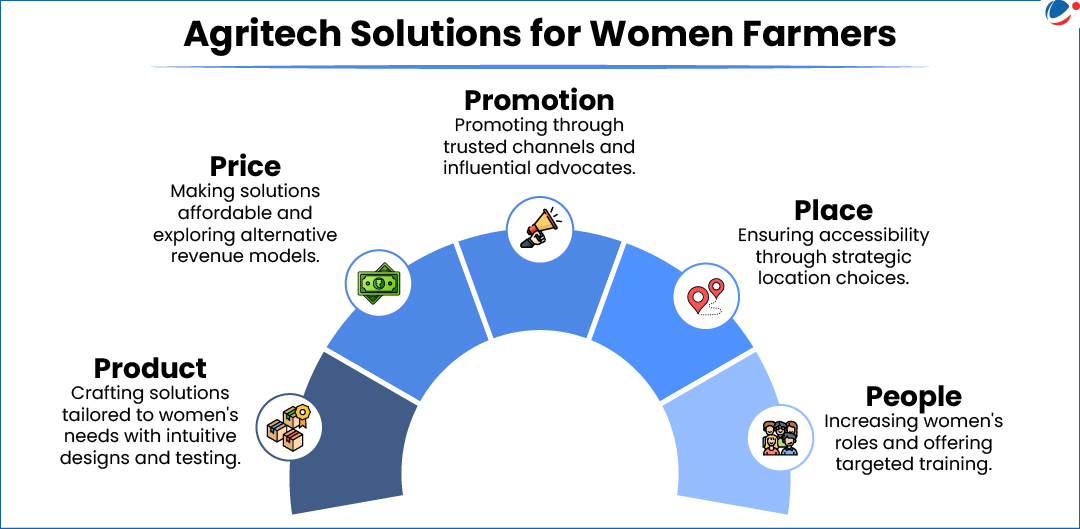Report by World Economic Forum (WEF) presents a global overview of gender-inclusive AgriTech and highlights how gender inclusive AgriTech can help women farmers achieve their full potential.
Need of Gender inclusive AgriTech for Women Farmers (as highlighted in the Report)
- Feminization of agriculture: In India, women’s participation is notably higher, nearly 50% across commercial value chains such as cotton, sugarcane, tea, coffee and cashews.
- Despite their substantial participation, women earn up to 60% less than men and face limited access to finance, training and technology.
- Efficiency: By transitioning to data driven planning of production, AgriTech can reduce both food loss and food waste and enable businesses to make their supply chains more efficient and resilient.
- Business imperative: Position gender-inclusive AgriTech as a strategic business imperative for the private sector.
Challenges for Women Farmers in adapting AgriTech

Demand side
- Sociocultural barriers: Perceptions about gender roles and biases, restrictions on mobility, and safety and security concerns.
- Limited access to resources: Limited land ownership hinders access to formal credit and other farm extension services.
- Literacy barriers: low education and digital literacy restricts awareness.
Supply-side
- Access to gender-disaggregated data: Lack of comprehensive data to differentiate between experiences of male and female farmers in accessing and using AgriTech services.
- Support system gaps: Limited mentorship and peer learning, weak coordination between agricultural research and extension services, etc.







